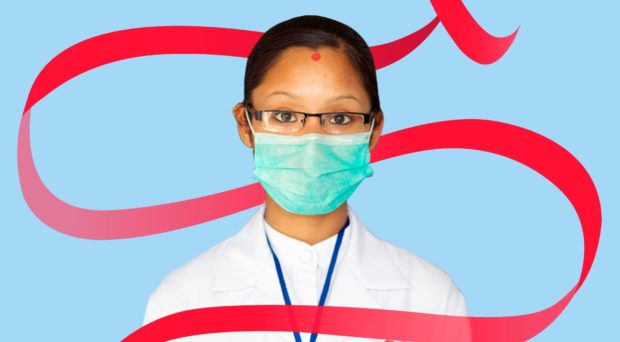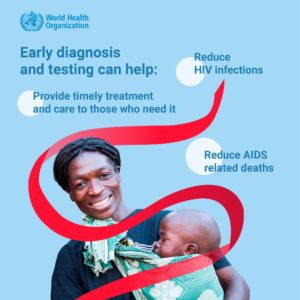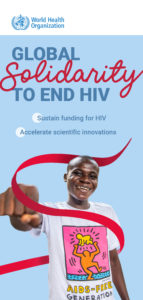
The World Health Organization (WHO) estimates that there were 38 million people worldwide living with HIV infection at the end of 2019 and that 68% of adults and 53% of children living with HIV globally are receiving lifelong antiretroviral therapy (ART). However, there is concern that health services are facing disruption during the COVID-19 pandemic and that resources for HIV testing and treatment might be reduced. The WHO calls for global solidarity to maintain efforts to prevent and treat HIV infection.
In the ISRCTN registry, we can see that research is increasingly focusing on addressing other health issues alongside HIV infection. This recognises that with effective ART, HIV-positive people are living normal lifespans and experiencing common diseases associated with ageing. Another theme is that ART is being refined to reduce side effects and ‘pill burden’, making it easier for people to stick to their treatment. This blog will summarize some recently registered studies that aim to identify effective ways of preventing infection and supporting people with HIV infection worldwide.

Prevention and treatment of other health issues
The FISH study in Malawi will establish a lakeshore clinic and will offer lake fishermen HIV services as well as treatment for schistosomiasis (bilharzia), a parasitic disease carried in freshwater. The study will test three approaches – giving a leaflet to fishermen, training one fisherman on each boat as a peer educator who can explain the leaflet, or additionally providing the peer educators with HIV self-testing kits to distribute to their co-workers. Researchers will assess levels of genital schistosomiasis, take-up of HIV testing and treatment for those who receive a positive HIV test, and fishermen’s knowledge of schistosomiasis and HIV prevention at 9 months after the intervention.
In lower-income countries, people can be forced to choose which healthcare appointments they attend based on whether they can afford to travel to the hospital or take time off work. The INTE-AFRICA study in Uganda and Tanzania will investigate an integrated care strategy that involves holding clinics for HIV, diabetes and hypertension on the same days in the same location, so that it is easier for people to attend regularly if they have more than one condition.
People with HIV infection are at higher risk of developing diabetes. The META study will randomize adults in Tanzania who are on stable HIV treatment and have pre-diabetes to receive extended-release metformin or placebo for 3 years to test whether metformin can prevent diabetes. All participants will also receive guidance on diet and lifestyle changes that can slow the progression to diabetes.
Infection of the stomach with Helicobacter pylori bacteria, which can lead to stomach ulcers and stomach cancer, is common within the general population. Little is known about the effectiveness of treatment of this infection in people with HIV infection. Two observational studies conducted in Belgium, OHpTHIV and HPPARHIV, aim to investigate whether there are differences in the rates of treatment failure of usual treatments for H. pylori and the development of antibiotic resistance between HIV-infected and -uninfected people.

Improving quality of life for people receiving HIV treatment
The PENTA 16 (BREATHER) study has shown that young people aged 8-24 years across four continents who took efavirenz-based ART every day during the week and not at weekends were not more at risk of viral activation than those who took treatment every day. The 5 days on/2 days off group also experienced fewer side effects and strongly preferred the ability to have weekends free of taking tablets. The BREATHER Plus study will look at the same administration schedule for dolutegravir-based ART in young people aged 12-19 years in Kenya, South Africa, Uganda and Zimbabwe.
Another strategy to reduce the potential for side effects is to reduce the number of drugs taken. The Penta21 study will recruit children aged 2-14 years in Spain, Thailand, the UK, South Africa and Uganda who are receiving the standard triple-drug ART in their location. The participants will be randomized to continue their usual ART or to receive a combination tablet containing dolutegravir and lamivudine, which is taken once a day.
Insomnia has been reported as a side effect that affects at least 1 in every 100 people taking dolutegravir and this can affect quality of life. The UK BIC CNS study will investigate whether there is a difference in sleep quality in HIV-positive adults treated with a combination of dolutegravir, abacavir and lamivudine or a combination of bictegravir, emtricitabine and tenofovir alafenamide. The participants will also have MRI scans of their brain while they are performing tasks to investigate whether there are differences in brain activity.
Mind the epidemics during the pandemic!
The progress made in response to the emergence of HIV over the past 40 years has shown that the global community can collaborate to make new infectious diseases manageable. While we are now at the uncertain start of our journey with SARS-CoV-2, we must not forget about the other epidemic infections that still reduce people’s potential to live free of suffering. Governments must sustain services targeting HIV and other infections and research that will eliminate them.
Comments